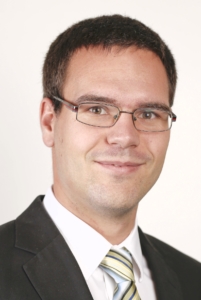IBM Research – Zurich is one of IBM’s 12 global research labs, the first established in Europe in 1956. As the first European branch of IBM Research, the mission of the IBM Research – Zurich Lab, in addition to pursuing cutting-edge research for tomorrow’s information technology, is to cultivate close relationships with academic and industrial partners, be one of the premier places to work for world-class researchers, to promote women in IT and science, and to help drive Europe’s innovation agenda.
Contribution to OPRECOMP
Team

Dr. Costas Bekas
Manager Foundations of Cognitive Solutions
Dr. Bekas received B. Eng., Msc and PhD diplomas, all from the Computer Engineering & Informatics Department, University of Patras, Greece, in 1998, 2001 and 2003 respectively. In 2003-2005, he worked as a postdoctoral associate with Professor Yousef Saad at the Computer Science & Engineering Department, University of Minnesota, USA. Dr. Bekas’s main focus is in HPC systems and their impact in everyday life, science and business. His research agenda spans large-scale analytics with an emphasis in graph algorithms/DBs, numerical and combinatorial algorithms, energy aware and fault tolerant systems/methods and computational science. Dr. Bekas brings more than 10 years of experience in high performance computing. During the past several years he has been very active in the field of energy aware HPC and new computing paradigms and architectures as well as the effects of inexact arithmetic and demonstrating their impact in HPC and large scale industrial problems with an emphasis in analytics applications. Dr. Bekas was a recipient of the 2012 Prace Award and the 2013 and 2015 ACM Gordon Bell prizes.
He is the principal Investigator of the OPRECOMP project.

Dr. Cristiano Malossi
Research Staff Member, Foundations of Cognitive Solutions
Cristiano Malossi received his B.Sc. in Aerospace Engineering and his M.Sc. in Aeronautical Engineering from the Politecnico di Milano (Italy) in 2004 and 2007, respectively. After working one year on computational geology problems in collaboration with ENI, he moved to Switzerland where in 2012 he got his Ph.D. in Applied Mathematics from the Swiss Federal Institute of Technology in Lausanne (EPFL), with a thesis focused on the development of algorithms and mathematical methods for the numerical simulation of cardiovascular problems. After winning the IBM Research Prize for his PhD thesis, in July 2013 Cristiano joined IBM Research – Zurich in theFoundations of Cognitive Solutions group. Cristiano is a recipient of the 2015 ACM Gordon Bell Prize and 2016 IPDPS Best Paper Award.
His main research interests include: High Performance Computing, Energy-Aware Algorithms and Architectures, Deep Neural Networks, Graph Analytics, Numerical Analysis, Computational Fluid Dynamics, Aircraft Design, Computational Geology, and Cardiovascular Simulations.
He is the Scientific Project Representative and coordinator of the OPRECOMP project.

Dr. Christoph Hagleitner
Manager Accelerator Technologies group
Dr Hagleitner received his Masters and Ph.D. degree in Electrical Engineering from the Swiss Federal Institute of Technology (ETH), Zurich in 1997 and 2002, respectively. The main focus of his research are high-performance and energy-efficient hardware accelerators for business and high-performance computing applications. His research agenda spans topics from novel computing paradigms (e.g., NEM switches for logic applications) to application-level acceleration (e.g., text analytics acceleration for the processing of unstructured documents). He has authored and co-authored 80+ papers in refereed journals and conference proceedings and written/edited several book chapters.
He leads the design of the kW architecture in OPRECOMP.

Florian Scheidegger
He leads IBM’s effort in OPRECOMP WP7 and WP5, defining micro-benchmarks and developing transprecision aware algorithms.
Dr. Dionysios Diamantopoulos
He leads IBM’s effort in OPRECOMP WP4: Design and implementation of the kW architecture prototype.

Dr. Heiner Giefers
Heiner received his diploma degree in computer science and his PhD degree in computer engineering from the University of Paderborn, Germany in 2006 and 2012, respectively. After his PhD he held a position as technical consultant for FPGA-accelerated high-performance computing at the Paderborn Center for Parallel Computing (PC2 ). In 2013 he joined the Accelerator Technologies group at IBM Research – Zurich. He has a particular interest in energy-efficient computing, reconfigurable architectures, on-chip interconnection networks, and hardware-software codesign.
He was responsible of IBM’s effort in OPRECOMP WP4 during the first year of the project.



